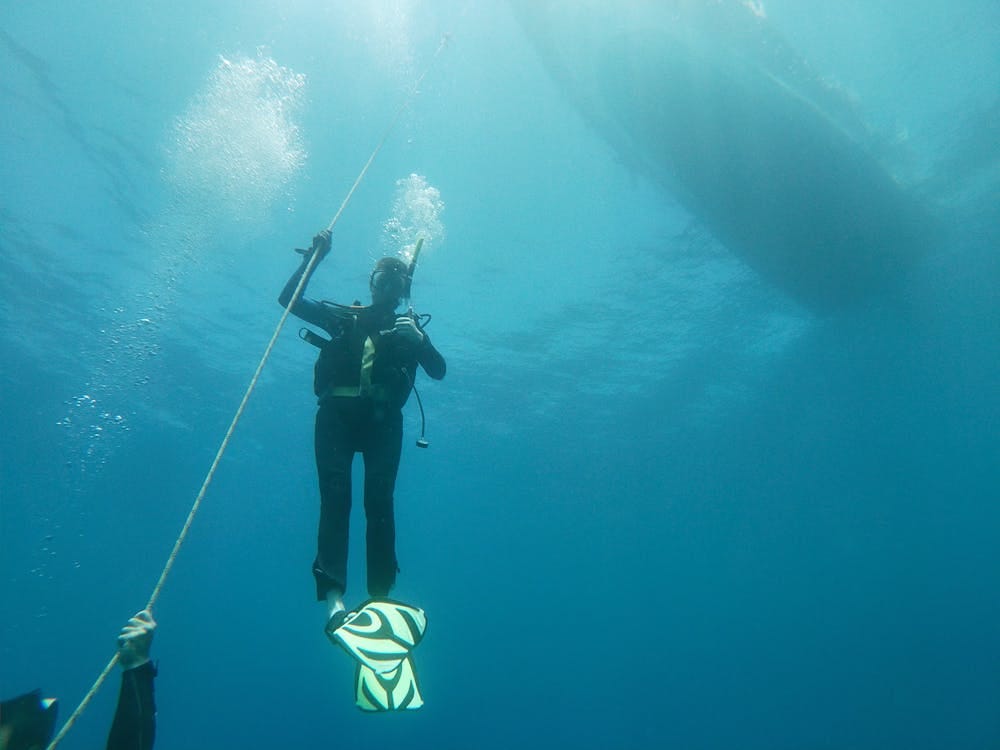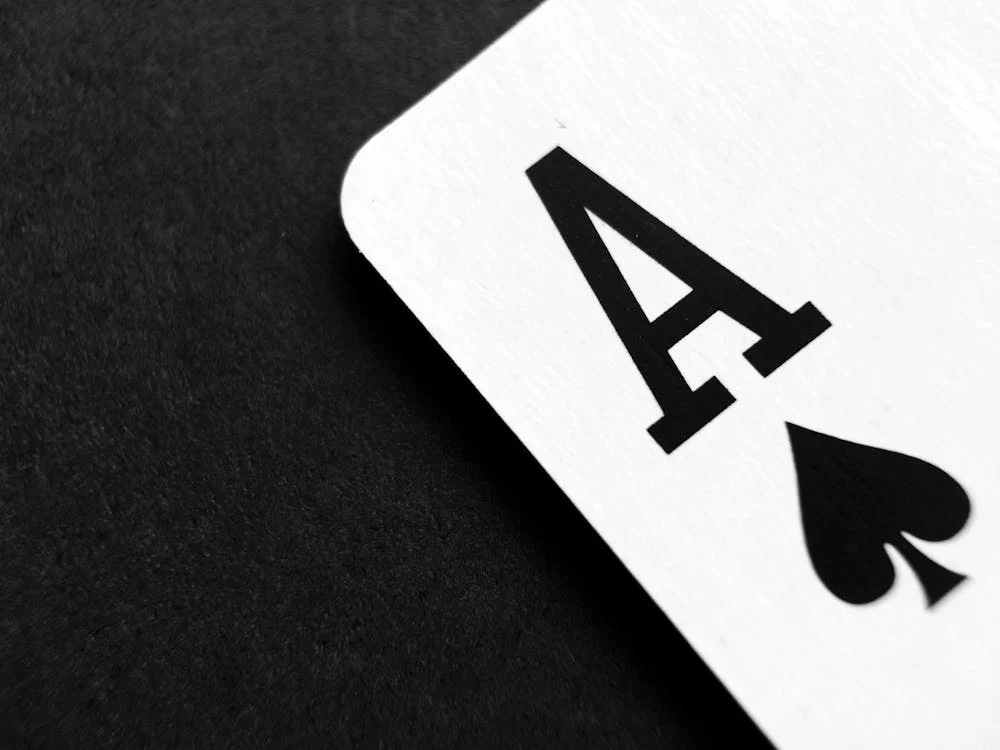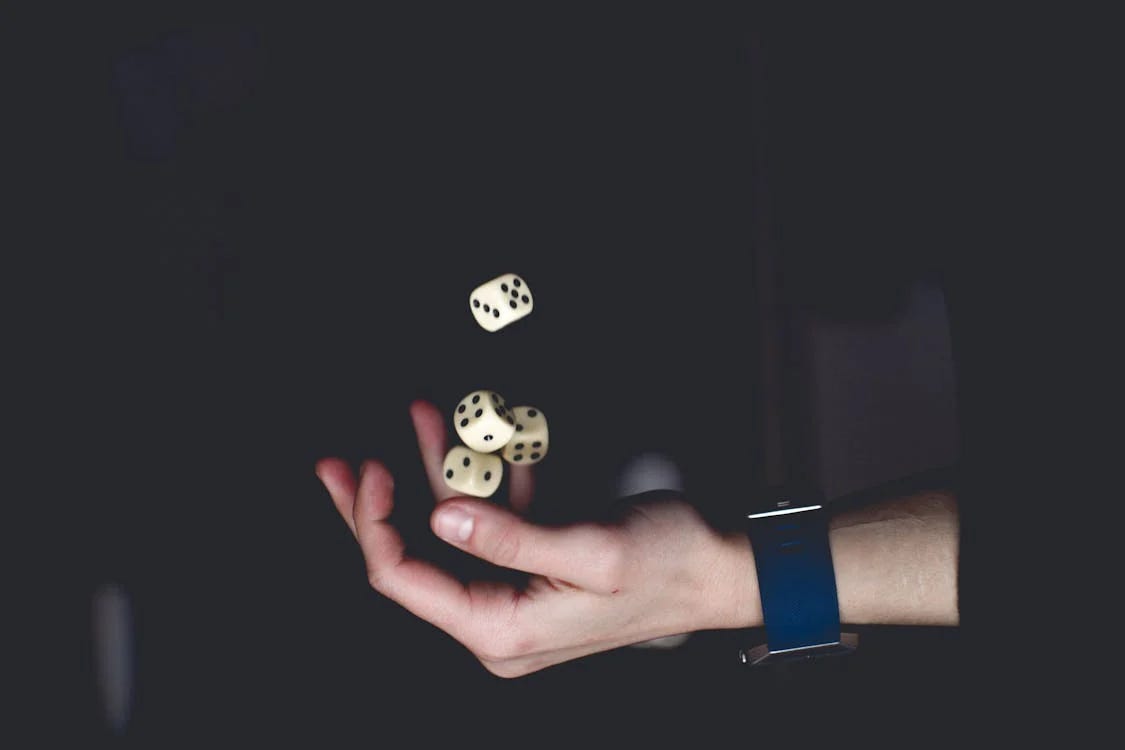"To get what you never had, you must do things you never did." —Unknown (popularized by Denzel Washington)
Risk is rarely just about outcomes. It’s also about change, identity, and control.
In this one:
A plunge
Risk
Life
STORY
Into the abyss
A day before a good friend’s wedding many years ago, I found myself crouched on the back of a small speedboat just off the coast of Dar es Salaam. I and a handful of strangers in wetsuits, looking as close to fish as we could.
I was about to attempt something I never thought I would: my first scuba dive. And in that moment, staring out at the open ocean, all I could think was… “What the hell am I doing?”
The water looked deep. The kind of deep that doesn’t look blue, but black. The kind that reminds you how little we all know about what lies beneath.
The speedboat came to a stop & I instantly felt the adrenaline in my blood. Almost as if the buzz of it’s engine had been drowning it out. An imbalanced mix of fear and excitement all at once.
I wasn’t panicking (yet). I wasn’t calm either. I was alert. Fully present. I couldn’t be anything else. For there was nothing but water and waves in all directions I looked.
The instructor was kind and experienced. We’d run through everything on land and in the hotel pool the day before. I knew the drill, but theory isn’t embodiment. Trusting that a tank will deliver air when you’re fifteen metres under is different from trusting that the sun will rise tomorrow. I had to feel my way into that belief.
The moment had arrived. One by one, we rolled into the water to begin our dive. The pros left me & the other beginner with our instructors as they disappeared underwater. I told myself I was ready & said goodbye to the surface.
As we sank, the world went quiet. And yet, in that silence, my thoughts and my pounding heart were louder than they’d ever been.
Within seconds, discomfort set in. The mask felt tight. My ears weren’t adjusting quickly. Everything felt slower and heavier than expected. I looked up to see how far the boat was and immediately panicked. Not wildly, but enough to want out. I looked at my instructor and gestured that I needed to go back up. Ironically, they use a “thumbs up” as the signal for that.
We surfaced. He was calm. I wasn’t.
He checked in with me and gave me space to breathe and recalibrate. And then asked, “Do you want to try again?”
I did. I wasn’t sure why, but I did. Something in me wasn’t ready to give up just yet. After all, what else was I there to do?
“Let’s try again. This time, don’t look anywhere else but at me. Keep your eyes on mine and we will go down together. You will be fine. Trust me.”
So I listened and locked my eyes on his dive mask. Take two.
We descended again, this time slower. Every move was deliberate. Breathe in. Breathe out. Equalize. Signal. Trust. Trust. Trust.
After a few minutes that felt like an eternity, he smiled and gave me an “Okay” 👌🏽 hand signal which I returned. We had arrived at our starting point. And right there, right then, something in me shifted.
I let go, and my mind stopped its counterproductive narrative.
And for the first time, I looked around. I wasn’t just underwater anymore. I was diving. And I was in a whole new world.
We often think of risk as something reckless – a departure from safety or an invitation to danger. Yet risk is omnipresent. It's not the opposite of certainty, but is the cost of anything meaningful.
Every decision we make carries some risk. Even doing nothing. What makes something feel risky isn’t just the facts. It’s perspective.
To someone else, that dive was routine. To me, it was uncharted. What changed everything wasn’t the conditions. It was a perspective shift that granted me sufficient confidence to dive into the unknown. And that confidence wasn’t blind. It came from preparation, guidance, and a choice to stay open even when I wanted to retreat.
Risk often requires openness more than it requires bravado.
I’ve thought about that dive on occasion, especially when approaching unfamiliar terrain in work, life, and everything in between. Sometimes you’re standing on the edge of something deep, unsure if you're ready. Sometimes you’ve done all the prep and it’s time to leap, not because there’s no risk but because you’ve made peace with the not-knowing.
And sometimes, like in the vast unknown ocean, you need to quiet the overthinking, breathe through the fear, and plunge into the abyss.
You’ll never eliminate all the risk. But you will always discover something new waiting on the other side of it.
EXPLAINER
Risk is where return lives
There’s no such thing as a truly “risk-free” investment.
A “sure bet” isn’t an investment. And it’s rarely as guaranteed as it sounds.
Outside financial markets, most people think of risk as something to avoid. But professional investors view risk differently. To them, it’s something to be assessed, priced, and, ideally, harnessed.
In investing, risk is the chance that actual outcomes will differ from expected outcomes. That’s a far more useful definition than fear or danger. Because while risk often includes the possibility of loss, it’s also the only path to potential gain.
Here is a principle to remember at all times:
Return lives on the other side of risk.
The greater the risk an investor is willing to take, the greater the potential return. That’s why markets offer different returns for different levels of risk whether in asset classes, countries, companies, or even timing. Bigger risks, if successful, earn bigger rewards.
You see this clearly in early-stage investing. Angel investors and VCs place small bets in high-risk startups, aiming for outsized gains. But those returns only exist because of the entrepreneurs who take on even bigger, more personal risks to bring something new into the world.
Still, risk isn’t always where people think it is.
We often assume:
That old incumbents are safer than upstarts, until they’re not.
That government bonds are “risk-free”, even though governments can and do default.
That “blue chip” stocks are reliable, yet some go bankrupt, as I learned early when one of the first shares my friends and I bought in university collapsed.
Why do we keep being surprised?
Because most risk assessments rely on the past — past performance, past reputation, past labels — while real risk is always about the future.
So, what should you take away?
You already have a risk framework whether or not you’ve articulated it. The work is to make it more conscious:
How do you define risk for yourself?
How do you evaluate it?
How much of it are you actually willing to take?
What are you hoping for in return?
We’ll go deeper into these ideas in future editions. For now, know this:
Every investment involves risk. And that's not something to fear. It's the reason reward exists at all.
NOTES
No risk, no story
When you plant a seed, you risk nothing sprouting.
And even if every seed does sprout, you still have to nurture your crop to maturity. In that time, you risk low yield, crop failure, even a drop in prices. A shift in weather can turn a promised harvest into something barely worth the effort.
That’s life.
If you only focus on the positive, you may act too quickly or without enough care. If you only focus on the negative end of the spectrum, you may never act. But if you never act, you’ll never know. Even indecision is a bet.
Reward and risk, like success and failure, are two sides of the same coin. The lives of those we admire are defined by risk. We live vicariously through their stories.
But what about betting on yourself?
It may work. It may not. But that’s the deal. There’s no guarantee.
You’re always making quiet wagers: that you will get where you’re going, that your phone has enough charge, that the choice you made last year still holds, that tomorrow will be better.
Risk reminds us that we’re alive. So the real task? To understand it. To make peace with it. To embrace it, not blindly, but like a long-lost friend.
In the words of Charles Bukowski:
“If you're going to try, go all the way. There is no other feeling like that. You will be alone with the gods, and the nights will flame with fire. You will ride life straight to perfect laughter. It's the only good fight there is.”
Your biggest rewards, whether you see it or not, come from your biggest risks.
No risk, no story.
“I don't want to end up simply having visited this world.” —Mary Oliver
The only good fight
Investing is risk.
Innovation is risk.
Life is risk.
If you don’t fail, you’re not trying.
If you never try, you’ll never know.
Here’s to taking the next bet.
Onward.
AG
If this spoke to something you’ve felt, hit ❤️.
I’d love to hear your take or your version of the leap.
And if someone else needs a nudge, feel free to share it forward.





Nice!!
No risk, no story